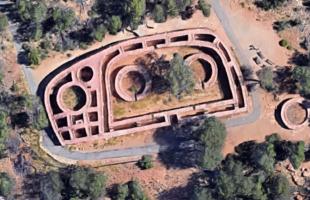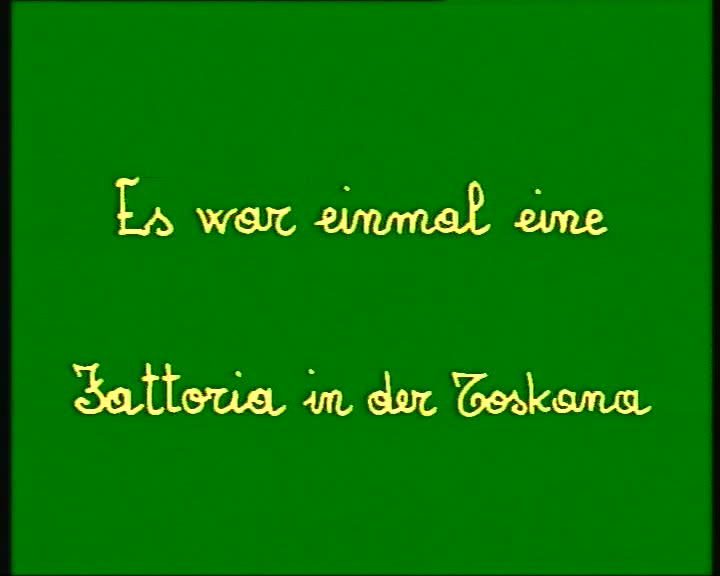Copy Link
Add to Bookmark
Report
L'CHAIM Issue 258 part 01

****************************************************************************
L'CHAIM ISSUE # 258 PART 1 OF 8
****************************************************************************
THE WEEKLY PUBLICATION FOR EVERY JEWISH PERSON
Dedicated to the memory of Rebbetzin Chaya Mushka Schneerson N.E.
****************************************************************************
Mar 5, 1992 Parshas - Tetzaveh 12 Adar 5753
****************************************************************************
Purim is such a great holiday. Children and adults alike love to celebrate Purim with the exciting and unusual mitzvot and customs of the day. Dressing up, eating hamentashen for dessert at the Purim meal (do you like prune, poppy seed, raspberry or apricot?), twirling the grogger at Haman's name in the Megila, and giving shalach manot--food gifts to friends. These are the reasons why the young of age and the young at heart look forward to Purim each year.
Did you ever stop to think what the Purim mitzvot and customs have in common? Let's take off the masks, open up the shalach manot, look inside the Megila--peel the layers off of everything--and see the common denominator intrinsic to all of them.
When someone is dressed up in a costume or mask, his identity is concealed. Rich or poor, smart or average, pretty or homely, we no longer perceive the physical, econo-mic, or intellectual differences that often separate us. Yes, one costume is expensive, another more original, and there are hundreds of Queen Esthers. But it's obvious that these are just externals. They aren't the person inside the costume. On a very basic level, when we dress up on Purim our superficial differences are, for the moment, concealed.
The Megila, that exciting story recounting the triumph of right over might, good over evil, and the Jews' faith in G-d over the vile schemes of Haman, is also a lesson in Jewish equality and unity. For, it was only once the Jews united, that they were saved from Haman's plan of total annihilation. Men, women, and children, scholars and shoe cobblers, peasants and the Queen, all fasted and prayed as one for three days and nights to avert the evil decree. And because they united, because each one felt equally responsible and able to effect a change, their prayers and penitence were accepted.
Now, on to those delicious hamentashen of varying fillings and recipes. Some say they are meant to remind us of Haman's hat or his ears. But they are also symbolic of that which is hidden within. G-d's hand, so to speak, was hidden during the whole Purim episode--the incidents which led up to Esther being crowned queen, Mordechai overhearing the palace guards' plot to kill Ahasuerus, etc., seemed quite natural. But they were--like everything in life--Divine Providence, G-d's way of putting together an intricate puzzle.
Just as the filling is concealed in the hamentashen and the Divine was hidden during the Purim epoch of Jewish history, the Divine within each one of us is hidden--very often to others and often even to ourselves. The Divine within each of us is our soul--the actual part of G-d that gives us life. And though it is intangible, though its existence is often concealed, the soul is the great equalizer of all of us. For, though one Jew might do more mitzvot than another, or have a more comprehensive Jewish education, or be kinder or gentler, the essence of our souls and their source are the same--an actual part of G-d.
Lastly, we have the shalach manot, those delightful packages of goodies. They range from a sandwich bag with raisins, cookies and a drink to a three-foot-high wicker basket filled with aged-wine and elegant treats. There are numerous differences in packaging, price and products, but, once again, all shalach manot have one thing in common: they foster unity. Unity not just because we feel good when we give and when we receive. But unity also because we customarily give the shalach manot through a messenger--we involve another person in the mitzva. When giving the shalach manot we connect not only with the person to whom we are giving, but to a third person as well. And the messenger can be anyone--young or old, friend or stranger, male or female.
This Purim in particular is a special time to participate in the mitzvot of Purim or to enhance our observance of them. For, as the Rebbe explained nearly two years ago, the Redemption is imminent and each act of kindness, every good deed, any additional mitzva, helps us better prepare ourselves for that era which is unfolding before our very eyes.
****************************************************************************
L'CHAIM ISSUE # 258 PART 2 OF 8
****************************************************************************
LIVING WITH THE TIMES
THE WEEKLY TORAH PORTION
****************************************************************************
In this week's portion, Tetzave, the Torah states: "Aaron shall burn incense each morning when he cleans the lamps. And he shall burn incense in the evening when he kindles the lamps." What purpose did the burning of incense serve in the Sanctuary, and later, in the First and Second Holy Temples? Furthermore, what can we learn from this to apply in our daily lives?
First of all, it is important to note that the command to build the incense altar and bring its offering are mentioned in the Torah as the final elements in the construction of the Sanctuary. In fact, the Divine Presence did not rest in the Sanctuary until the incense offering was brought.
What is the reason for this uniqueness? Our Sages explain that the sacrifices offered on the altar in the courtyard of the Sanctuary relate to a Jew's body, while the incense offering brought on the inner altar relates to a Jew's soul.
This concept is reflected in the Hebrew names used to describe these different offerings. The Hebrew word for "sacrifice" is korban, which has it root in the word "karov," meaning "close." In contrast, the Hebrew for "incense" offering, ketoret, relates to the root ketar, Aramaic for "bond." By bringing a sacrifice, a Jew draws close to G-d. Through the incense offering, however, a Jew and G-d become fused in total unity.
Thus, it is only after the Torah describes the preparations necessary for the Sanctuary, whose purpose is to make it possible for the Divine Presence to dwell among--and thus within--the Jewish people, that it mentions the incense offering, which allows for a bond of oneness to be established between them.
This theme of oneness is also reflected in the dimensions of the incense altar, which measured one cubit by one cubit. Likewise, when the incense offering was brought, the priest making the offering was alone with G-d. No one else was allowed to assist.
These concepts must be paralleled in our daily service of G-d. Every day, a person arises as "a new creation." Every day, therefore, we must renew our inner bond with G-d as expressed by the recitation, in our daily prayers, of the verses concerning the bringing of the incense offering, and how that offering was brought in connection with the cleaning and the kindling of the Menora. This teaches us that the bond between us and G-d must be extended into our worldly affairs, causing them to be carried out in the spirit of "All your deeds shall be for the sake of Heaven," and "Know Him in all your ways."
Adapted from the works of the Lubavitcher Rebbe.
****************************************************************************
L'CHAIM ISSUE # 258 PART 3 OF 8
****************************************************************************
SLICE OF LIFE
****************************************************************************
A MOST UNUSUAL WAR
(Before Rosh Hashana two years ago, the Rebbe called the year to come, 5751, a year when "I [G-d] will show you wonders." Before the outbreak of the Gulf War, the Rebbe further stated--and repeated these statements throughout the war--that Israel is the safest place in the world based on G-d's promise that He is constantly watching the Holy Land. During and after the war, people everywhere agreed that the failed attempts of the SCUDs to destroy Jewish life was nothing less than miraculous. The war officially ended on Purim. On this anniversary, we bring you the prologue to a book of diaries kept by Israelis during the war.)
by Miriam Zakon
The Jews have always fought unusual wars. When Abraham took on four mighty kings, he left behind his allies and their armies and went into combat with only his servant alongside him. Joshua breached a wall with prayer and shofar blasts, eschewing conventional weapons. David faced a giant with nothing but faith and a rock.
The patterns of our forefathers' lives persist throughout the generations. The story of modern Jewish warfare, which began only a few decades ago, is a string of unbreakable rules broken, military pundits confounded, and undreamed of successes. Miracles remain as much a part of the Jewish arsenal as the M-16.
Small wonder, then, that the latest assault on a war-weary nation has been most unusual. For the Holy Land, Operation Desert Storm has been a war whose soldiers are schoolchildren and whose front lines are our own bedrooms; a war in which our enemies come to our defense, and in which our own best defense is not fighting.
Every war brings with it its own unique imagery. For Americans, Operation Desert Storm has meant weekend warriors suddenly whisked to the desert, struggling with the heat in cumbersome and surrealistic protective gear. It has meant snakelike convoys of jeeps and tanks and trucks making their way through desert sands heretofore trodden upon only by caravans of camels. And it has meant nightly scenes of Baghdad burning, with the chilling wail of sirens in the background, brought to you courtesy of your on-the-spot CNN correspondent.
The images change as we move westward to the Holy Land. For many in Israel, the nebulous threat of war gained a grim solidarity with the distribution of gas masks to the populace, a strange affair that often took on a manic, carnival air: parents sat solemnly in empty schoolrooms, learning how to inject their loved ones with anti-chemical atrophine, and then they went outside to buy their children cotton candy from enterprising vendors. As tens of thousands of khaki-clad soldiers converged upon a pitiless desert to prepare for a merciless battle, tens of thousands of Jews converged upon the Kotel [Western Wall] to beg for Heavenly mercy. Allied troops were equipped with tanks, artillery and a gallery of high-tech weaponry. Jews in Israel were equipped with plastic sheeting, masking tape, and prayer.
And then it began, with the eerie, shofar-like wail of sirens. The images, like the feelings, came fast, with the breathless speed of dreams. Non-stop delegations came to show solidarity and view the ruins. Ambulances raced through darkness, sirens silenced for the duration.
And miracles. Out of the destruction, out of the twisted metal and piles of stone, survivor after survivor has emerged, each with his own tale of extraordinary Providence. An infant spent hours buried under concrete; he was finally dug out, asleep and unharmed in his plastic-coated crib. Hearing the sirens, 90 people sprinted to a bomb shelter, only to find it locked. They took refuge in a smaller shelter nearby--and watched the larger shelter take a direct hit. Another missile made its deadly impact on the only uninhabited apartment building in a densely populated area.
An elite canine unit sniffed out a family buried under the 30 feet of rubble that had been their home. It took a crane and a dump truck to extricate them--yet they were all released from the hospital that night. Two brothers, hearing the siren, raced outside to invite an elderly neighbor to join them in their sealed room. Safely outside, they watched their house collapse. "G-d threw down mattresses to cushion our falls, pushed walls out of our way," declared a grateful survivor. The miracles have been so overt that even the most secular of reporters and the most cynical politicians can only wonder at what they saw.
G-d's salvation comes in the blink of an eye. It was the Fast of Esther, 5751, a gray and overcast morning. In Israel, the air was heavy with an uncertainty as palpable as the smell of freshly baked hamantashen--or aznei Saddam, "Saddam's ears" as they were called that year. The ground war had just begun, and one could envision the miles of minefields waiting to be traversed, and the legions of war-hardened Iraqi soldiers armed by a too-willing world and eager to fight the "mother of all battles." On the news, one heard how a single Scud missile had killed a score of American soldiers, bearing grim testimony to the deadly effectiveness of the weapons many Israelis had begun to view as mere nuisances designed to rob a nation of sleep.
Purim, the time when the tables were turned on the wicked, the time of deliverance from danger, was coming. But with civil defences authorities issuing regulations concerning how much Purim makeup one could wear without impairing the effectiveness of his face mask, with shuls making arrangements in case of sirens during the Megila reading, what joy could we look forward to? Where were the miracles of Purim this year?
"And it was turned about." As Jews returned home from the Megila reading on Purim morning, they were greeted with the news: the war was over! A suspension of fire was in effect. Israel's state of emergency had been lifted.
And what was left for us, in the aftermath of war? About a million square meters of plastic sheeting to dispose of. And boundless gratitude to the Alm-ghty, Maker of miracles, Who watches over His land and His people.
Reprinted with permission from From Our Sealed Rooms, published by Targum Press.
****************************************************************************
L'CHAIM ISSUE # 258 PART 4 OF 8
****************************************************************************
WHAT'S NEW
****************************************************************************
NEW FOR TOURISTS
A new Chabad Center opened in the Old City of Jerusalem (bringing the number of Centers in Israel to 183) specially to fill the needs of tourists. Rabbi Noson and Inbar Blumes are heading the Chabad House. One of their most successful activities is their Shabbat program attended by visitors from around the globe who enjoy the discussion, delicious food, and general ambiance. To contact the Blumes' call (2) 280-611.
PICTURESQUE PURIM
A picturesque view, delicious Purim dinner, live music and comedian Stu Trivax, are part of the Purim program on Sunday, March 7, sponsored by the Chabad Center of North West NJ. For more info call (201) 625-1525.
****************************************************************************
L'CHAIM ISSUE # 258 PART 5 OF 8
****************************************************************************
INSIGHTS
****************************************************************************
JEWISH SPIRIT IS NOT
ABSTRACT
From a letter of the Lubavitcher Rebbe
With the approach of Purim, I take this opportunity of extending to you prayerful wishes for a joyous and inspiring Purim, and to send you this timely message in lieu of Mishloach Manot.
One of the most inspiring lessons of Purim is the extraordinary courage of Mordechai Hayehudi [the "Jew"], who "would not kneel nor bow down," despite the physical vulnerability of our people being "spread and scattered among the nations"--a tiny minority against an overwhelming majority. Yet it is this uncompromising stance that brought triumph over all adversaries, so that "for the Jews there was light, joy, gladness, and honor." And the awesome respect of their erstwhile detractors.
The teachings of our Torah (Torah meaning "instruction"), like the Torah itself, are eternal, including the lessons of Purim; particularly since we are still "spread and scattered among the nations," including our brethren in the Holy Land, for they, too, are surrounded and besieged by numerically overwhelming hostile nations. But Purim teaches us that the strength of our Jewish people, as of every Jew individually, is in our G-d-given capacity of "not kneeling nor bowing down" to any force that is contrary to our Jewish essence, which is rooted in the Torah and mitzvot. Indeed, yielding to any influence that is alien to our Jewish spirit and way of life, far from winning goodwill and respect, must necessarily bring forth contempt, be it overt or covert. For, what is one to think of a cringing Jew who is willing to compromise his true Jewish identity and noble traditions going back to the time when the world was steeped in barbarism.
Needless to say, the true Jewish spirit, as exemplified by Mordechai and Esther, must not remain in the abstract, but must be translated into concrete behavior in one's daily life, in keeping with the basic principle of our Torah that "action is the essential thing."
Certainly this is to be expected of young people, who are generally blessed with a greater sense of urgency and doing. Especially young couples who start out on their own, establishing a home on the foundations of the Torah and mitzvot, to raise a family in the true tradition, and make it a binyan adei-ad [an everlasting edifice] in the fullest sense.
And here, of course, a great deal depends on the akeret habayit [the foundation of the home, i.e., the woman], in whose hands G-d has entrusted the major responsibilities for the character and actual conduct of the home, such as kashrut, Shabbat observance, taharat hamishpacha [laws of purity of Jewish family life], raising the children, and so forth. This in no way diminishes the husband's full share of responsibility in this G-d-blessed partnership, and they must consistently encourage each other to upgrade all things of goodness and holiness, Torah and mitzvot; but there is no getting away from the fact that the wife and mother bears the noble calling of "the foundation of the home."
It is also self-evident that together with the G-d-given task comes the G-d-given capacity to carry it out to perfection. Thus it is basically a matter of one's own will and determination.
It should be noted, in conclusion, that there is no greater emphasis on the historic role of the Jewish life than in the events that brought about the Miracle of Purim, as related in the Megila--which is named not after Mordechai, nor Mordechai and Esther jointly, but solely after Esther-Megilat Esther!
Wishing you, in the midst of all our people, in the words of the Megila, "Light, joy, gladness, and honor," in the fullest sense of these terms, including their inner meaning, "Light--this is Torah," etc.
****************************************************************************
L'CHAIM ISSUE # 258 PART 6 OF 8
****************************************************************************
CUSTOMS
****************************************************************************
Esther (known in Hebrew as Hadassah), was orphaned and raised by her relative, Mordechai. She became Queen of Persia after the execution of Queen Vashti, and, because of her great self-sacrifice, became the primary figure responsible for saving the Jews from annihilation during the Purim plot. She wrote the Megilat Esther which was accepted by the Sages to be included in the Jewish canon. Her son, Darius II, embarked on the rebuilding of the Second Holy Temple following the death of Ahasuerus.
****************************************************************************
A WORD FROM THE DIRECTOR
****************************************************************************
This Sunday we celebrate Purim, commemorating the time when the Jews were delivered from Haman's terrible decree. Once Haman's plot to destroy the Jews became known, Mordechai sent a messenger to Queen Esther, asking her to go to the King on behalf of her people.
Esther hesitated; anyone who approached the king without being summoned and did not meet with his favor forfeited his life. When Esther relayed this message to Mordechai, the Megila tells us he responded:
"Think not of yourself.... For if you hold your peace at this time, then the deliverance will come to the Jews from another place.... And who knows whether you came to the kingdom for just such a time as this."
Esther understood Mordechai's message. As a tzadik and the leader of the Jewish people of that generation, Mordechai knew, through Divine inspiration, that the Jewish people would be delivered. Their deliverance was certain; it would come from somewhere. The only question was who would help actualize this Divinely inspired promise?
Esther capitulated and asked Mordechai to tell the Jews to fast and pray for three days so she should be successful in her mission of finding favor in the king's eyes and finally saving the Jewish people. That is what happened and the Jews were ultimately delivered.
Every generation has its Mordechai--a tzadik and great leader who is the physical embodiment of G-dliness in this world. The Mordechai of our generation stated nearly two years ago the Divinely inspired words, "The time of your Redemption has arrived." The Rebbe said that to prepare ourselves for the Redemption we should learn about Moshiach and the Redemption. Now, as then, the Rebbe's message was that the deliverance is coming, the Redemption will take place, it's happening.
The only questions are, "Who will help actualize this Divinely inspired promise? Who will be prepared and help others prepare?"
The responsibility lies with each of us. We must do everything possible to spread the Rebbe's message of the imminence of the Redemption and the importance of learning about it. Then we will surely merit the total fulfillment of one of the last verses of the Megila that, "there was light and joy, gladness and honor," so may it be with us.
****************************************************************************
L'CHAIM ISSUE # 258 PART 7 OF 8
****************************************************************************
IT HAPPENED ONCE
****************************************************************************
Moshe the fisherman peered into the water. "What has happened to the fish? I was counting on fish for our Purim feast." Moshe cast his nets again and pulled them in--nothing at all. Dusk was falling and Moshe began to pull in his nets for the final time when he saw something silver shimmering in his net. Why, it was as fine a fish as he could have hoped for.
Just then, a thought caught him. According to his contract, half of every catch belonged to the landlord. So by right, this fish was the landlord's. Moshe was caught in a quandary. He couldn't give up this fish, for he desperately wanted it to honor the festival, but to withhold it from the poretz (landlord) was equally impossible. Finally he came to a decision. This fish he would keep; tomorrow's catch would go entirely to the poretz.
Moshe set off for home in a happy mood, the silvery fish tucked under his arm. But, he was not alone. Piotr, the gardener, was standing behind the hedges. "This Moshe, who the poretz thinks is so trustworthy, is making off with the poretz's fish. These Jews always think they can outsmart everyone, but now, I'll have the last laugh."
Piotr was trimming the hedges in front of the manor house when the poretz came out for his afternoon stroll. He pretended to be murmuring to himself, but made sure the poretz overheard: "Imagine, Moshe keeping that huge fish for himself, and giving nothing to the poretz."
"What's that you say?" said the poretz. "Moshe didn't bring me any fish today, but I thought he just didn't catch anything."
"Well, I saw him carrying home a nice one just about an hour or so ago," said Piotr, hiding his glee.
"If that's so, I'll soon know about it," said the angry poretz, dispatching a servant to bring Moshe to him immediately.
"What happened to my fish, Moshe? Is this how you repay my trust?"
"Please, sire, I can explain," stammered the frightened fisherman. "Today is our festival of Purim and I had to have a fish for our meal. I never intended to steal from you for I am planning tomorrow to bring you my entire catch and keep nothing for myself."
"I don't care about your holidays! It's my fish!" The poretz was furious.
"Please let me explain. Every month has a celestial sign and this month's sign is the fish. It reminds us that just as fish never close their eyes, G-d never closes His eyes--He always watches His people to protect them from harm. Long ago on Purim He saved us from the wicked Haman. Please forgive me this once and let me keep the fish. I will make it up to you."
The poretz allowed himself to be persuaded. "You may keep the fish, but if it ever happens again, I'll hang you," he said, pointing to a huge oak.
Some days later was a meeting of all the landowners of the district. Each had some complaint: one had lost a fortune gambling and was now in debt; another was having trouble paying for the redecoration of his mansion; a third couldn't meet the payment on his gilded carriage. One of them spoke out: "Who is to blame for all our troubles? The Jews, of course. They are the managers of our estates, inns, finances. They're ruining us!"
Another landowner piped up, "My Jews are just like that! They are so lazy, they never work!"
Then the poretz spoke up, "My Moshe even kept all the fish for himself because it was some holiday or other for him!"
"Let's get rid of those parasites for once and for all! I'll draft a proclamation expelling them from our territories, and you all sign," said one of the leading nobles. There was general agreement all around, as the Russian gentry anticipated the end of all their woes.
Suddenly all gazes were drawn to the doorway. There, unexpectedly, stood the royal prince himself, resplendent in his sapphire blue robes. "Sire," began a duke, "won't you sign our document about the Jews?"
The prince read the document. "Surely you jest," he said. "For these so-called 'offences' you want to banish the Jews? You must be mad. On whom do you propose to rely, on the Poles who hate you, or on your servants who rob you blind? My friends, you will be doing yourself a great disservice, for you will never find servants more loyal and capable than the Jews."
A buzz passed through the hall. "With your permission," the prince said, and tore the paper into pieces. Then he left the room without another word, leaving the embarrassed nobles to stare at one another in wonder.
The poretz returned home full of confusion. How could the prince have appeared and then vanished so fast? It could only have come from Above.
When he arrived home he sent for Moshe. "I saw your G-d today. He came to protect you at our meeting."
"What are you saying, Sire?" The poretz told him about the decree and the strange appearance of the prince. "Oh, no, Sire," replied Moshe, "You cannot see G-d. Perhaps Mordechai came to save us, just as he did on Purim so long ago," he added hesitantly.
"Well, whatever it was, it seems you have had some good fortune from your festival...and your Purim fish!"
****************************************************************************
L'CHAIM ISSUE # 258 PART 8 OF 8
****************************************************************************
THOUGHTS THAT COUNT
****************************************************************************
Command the Children of Israel that they bring you pure olive oil, pounded, for the lighting, to cause a light to burn always (Ex. 27:20)
The First and Second Holy Temples illuminated the world with their light for a specific and limited period of time. The Third Holy Temple, however, which will be rebuilt when Moshiach comes, will be in fulfillment of the latter half of the verse, "to cause a light to burn always." Its light will never be extinguished. (Rabbi Yitzchak Karo)
---
You shall command--ve'ata tetzave (Ex. 27:30)
Chasidic thought interprets this verse to mean, "You shall connect yourself to..." Moses was commanded to establish a connection between his essence and the Jewish people. In an extended sense, this command can be understood as having been directed to every Jew, for each Jew has a spark of Moses in him. "You" refers to the essence of the soul, the fundamental core of every Jew's being. This is revealed by the establishment of a bond with G-d's essence. (Lubavitcher Rebbe, shlita)
---
One who reads the Megila backwards has not fulfilled his obligation (Mishna, Megila)
The Baal Shem Tov offered a Chasidic interpretation of this law: A person must not view the story of Purim as just a historical narrative, something that happened long ago in another time and place. The purpose of reading the Megilla on Purim is to ensure that "these days are remembered and kept throughout the generations." The events of Purim are not only relevant to the present time, but each detail of the story contains lessons to be applied in our daily lives.
****************************************************************************
A THOUGHT ABOUT MOSHIACH
****************************************************************************
In Pesikta D'Rav Kahane, it is stated, the Holy One Blessed Be He said, "You loved my Torah but did not actively await my Kingdom." "The most basic of all basics" is the belief in the coming of Moshiach, for it is then, that G-d will reign over all the lands, and everyone will recognize his Kingdom. Although he tarries, nevertheless we are obligated to await, expect, beg and demand, "When will You reign in Zion?" (Chofetz Chaim-Parshat Noah)
***************************************************************************
Published by Lubavitch Youth Organization 770 Eastern Parkway Brooklyn NY 11213 (718) 953-1000, 778-6000 Rabbi Dovid Raskin - Chairman Rabbi Shmuel Butman - Director Rabbi Kasriel Kastel - Program Director Rabbi Shlomo Friedman - Administrator Yehudis Cohen - Editor Esther Altmann, Mordechai Staiman - Copy Editors Rabbi B. Bell, Basha Majerczyk - Contributing Editor Rabbi Nissen Mangel - Chairman Editorial Committee Rabbi Zalman I. Posner - Consultant All contents (c) 1991 by L.Y.O. ISSN 1050-0480 Permission is granted for BBS distribution, provided no changes are made and that it be complete with all credits to L.Y.O. and L'Chaim BBS. The name of this publication is an acronym for L'zecher Chaya Mushka ***************************************************************************
This BBS version of the L'Chaim publication, was prepared for BBS distribution by Reuven Blau, Sysop of L'Chaim BBS, KESHERnet N.Y. 718-756-7201. Please address all questions or comments via the Chassidus echo via the KESHERnet G L O B A L Jewish BBS netwrok
or netmail directly to the Sysop of L'chaim BBS (Fido net. 278/610).
























